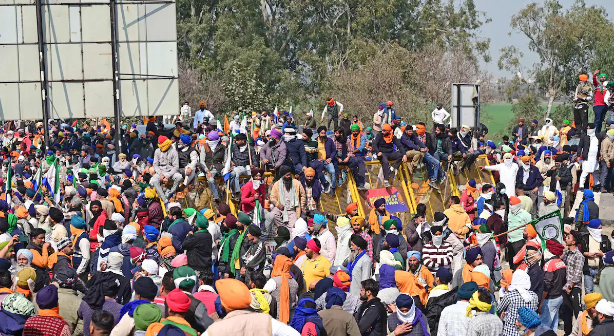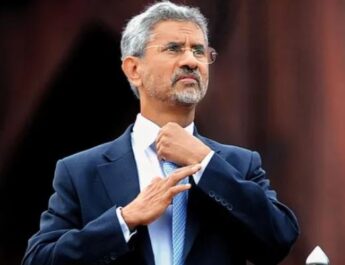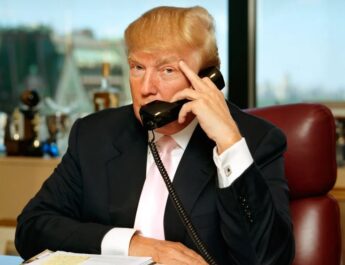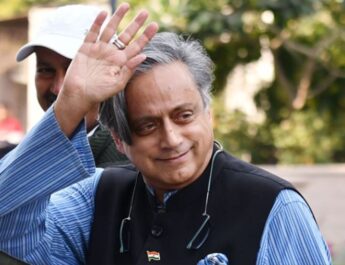Farmers Protest on MSP : Third round of talks with Centre ‘fruitful’; Internet still suspended in 7 Haryana districts
Farmers Protest on MSP : Early on Friday morning, the leaders of the farmer unions, Punjab Chief Minister Bhagwant Mann, and Union Ministers Piyush Goyal, Arjun Munda, and Nityanand Rai wrapped up their third round of talks. Speaking to the media late last night, Munda said the meeting was “very positive” because the farmers had raised a lot of significant issues. He went on to say that Sunday will be the day of the next round of negotiations.
The Haryana government extended its order to suspend internet services till February 17 in order to “prevent any disturbance of peace and public order” as the farmers’ agitation entered its fourth day on Friday. Farmers from BKU Dakaunda (Dhaner) and Bharatiya Kisan Union (Ekta Ugrahan) held “rail roko” protests at multiple railway stations on Thursday.The protests had taken a violent turn earlier in the week, as the Haryana Police, in a bid to stop farmers from marching towards Delhi, fired teargas shells and rubber bullets, injuring at least 40 farmers. At least three farmers lost their vision due to pellet injuries.
●The purpose of protest by a group, community, or individual is to express their disapproval or defiance of the actions, policies, statements, etc of the state, government, or organization.
In general, protests work in two ways:
●First, it shows the community or group, or individual that they disagree with the policy,
●Second, it helps governments identify their own shortcomings and work to make them better.
Constitutional Provisions regarding Right to Protest in India :
The Fundamental Right
●The right to protest, to publicly challenge and try to persuade the government to respond, is a fundamental political right of the people that stems directly from a democratic interpretation of various provisions of Article 19.
●Although the Right to Protest is not an explicit right under the Fundamental Rights, it can be derived from the Right to Freedom of Speech and Expression under Article 19.
●The right to protest is protected under Article 19(1)(a), Article 19(1)(b) and Article 19(1)(c), which gives citizens the right to freedom of expression, the right to meet peacefully without weapons and the right to form associations or trade unions.
Right to Freedom of Speech : Article 19(1)(a):
●The right to free speech and expression is translated into the freedom to publicly express one’s opinion on the activities of the government.
Right to Freedom of Association: Article 19(1)(b):
●It is vital to have the right to form political organisations. These can be organised in order to challenge government activities collectively.
Right to Freedom of Assembly: Article 19(1)(c):
●Individuals have the freedom to peacefully congregate in order to question and object to government actions through demonstrations, agitations, and public assemblies, as well as to form long-term protest movements.
●When these rights are combined, they allow anybody to peacefully gather and demonstrate against the State’s action or inaction.
Reasonable Restrictions on Right to Protest
●The right to protest, like other fundamental rights is not absolute and is subject to reasonable restrictions outlined in Articles 19(2) and 19(3) .
Reasonable restrictions are –
●If the security of the State is in danger;
●If the friendly relations we share with a neighbouring country are threatened;
●In case of violation of public order;
●If there is contempt of court;
●If India’s sovereignty and integrity are threatened.
●Decency or morality
● contempt of court, defamation or incitement to an offence.
Importance of Right to Protest for Democracy
●The active exercise of the right to protest ensures that citizens play the role of vigilant observers, consistently scrutinizing the government’s actions and ensuring their fairness.
● The importance of protests lies in the fact that they:
● Foster Positive Social Change
● Promote Human Rights
● Influence all Aspects of Life
● Empower the Marginalized
● Strengthen Democracy: They aid in fostering representative democracy by facilitating direct participation in public affairs.
● Enhance Accountability
International Law on Right to Protest
● The right to peaceful protest is enshrined in the Universal Declaration of Human Rights of the United Nations, which was adopted in December 1948.
● In international law, several treaties, notably the International Covenant on Civil and Political Rights, recognize the rights to freedom of association, peaceful assembly, and speech.
Concerns Associated with the Right to Protest
● Potential for Violence
● Political Interference
● Impact on Daily Lives of People: Protests can sometimes be a public nuisance for people who do not share the same viewpoint or simply wish to carry on with their daily routines.
Supreme Court’s Judgements on Right to Protest
● The Supreme Court has recognized the right to peaceful protest and held that “democracy and dissent are inseparable,”.
● The Constitution protects the freedom to protest and express dissent, but it is also accompanied by Fundamental Duties such as Article 51A , which states that every citizen has a fundamental duty to protect public property and refrain from violence.
● Ramlila Maidan Incident vs. Home Secretary, Union of India (2012) : The Supreme Court ruled that citizens have a fundamental right to assemble and protest peacefully, which cannot be taken away by arbitrary administrative or legislative action.
Powerful Peaceful Protest in India
● Chipko Movement, 1973
● Lokpal (Jan Lokpal ) Bill, 2011
● Nirbhaya Movement, 2012
● Farmers’ Protest, 2020
● Peaceful protest is a fundamental right and the lifeline of democracy, and in its absence, the democratic system cannot function properly, as protests are an indicator of a free, democratic society .
● So the right to protest is an essential element in a democratic country and it should be used appropriately when required, and the government should also help citizens to use their fundamental rights, rather than limiting this fundamental right.




